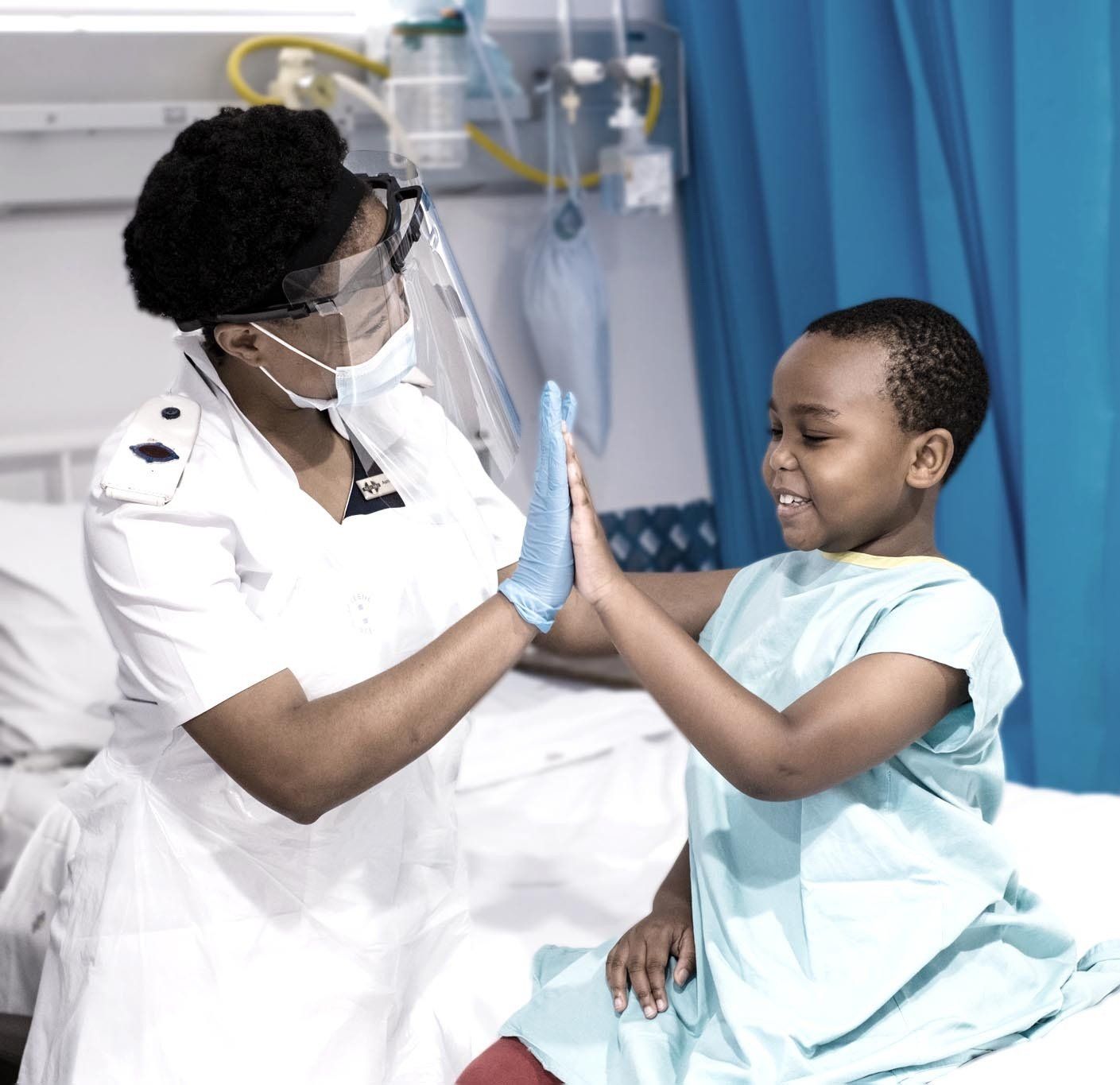Coping with the cares of an unwell child
How families can stay strong and support a child with a long-term medical condition
Cancer, heart disease or a debilitating injury do not usually feature in the world of playdates, sports days and bedtime stories – the world of children. Yet for some parents, having to face a long-term medical condition that threatens the wellbeing of their child, and finding a way to cope, is a difficult reality.
Dr Terri Henderson, a child psychiatrist practising at Netcare Akeso Kenilworth says that knowledge and communication are essential components in such a family’s mental health toolkit. “As a parent, your greatest concern is the health and safety of your child. Finding out that this precious life – which you treasure above your own – is at risk, brings on a range of emotions that are quite normal under such distressing circumstances.”
Expect a tidal wave of emotion
“The primary, most dominant emotion is shock. There is also going to be confusion and trying to make sense of why this has happened to your child. Naturally there will be a period of anger too, as all your expectations for your family’s future have now been turned upside down,” explains Dr Henderson.
“Eventually there will be a certain amount of acceptance as the family tries to adapt, although ongoing distress is to be expected. Dramatic changes to daily family life may include the need for one parent to stay with the child whilst the child is receiving treatment in hospital, or to care for the child at home, for example. Difficult medical decisions may need to be made and the financial implications of the situation can be a major additional stressor.”
Exercise your right to know
The severity of the emotional experience will depend heavily on the communication, support and explanations provided by the treating medical team, says Dr Henderson. “Knowledge is power. Having a good understanding of the full picture about your child’s condition, treatment options and prognosis is essential and you have a right to ask the medical team treating your child for information.”
Dimakatso Motiang-Ngoveni, a clinical psychologist at Netcare Akeso Arcadia, points out that further to this, parents and guardians need to know they are in fact part of the team providing medical care to their child, as their presence and support are critical for the wellbeing of the child. “It is important for parents to engage the healthcare professionals in communicating to their child when procedures are being done, for example, and to allow room for the child to ask questions too.
Talking with your child and his or her siblings
“When discussing the situation with your child and his or her siblings, there are many aspects that need to be considered and which may not seem obvious. It is common for children in this situation to feel anger and resentment towards others or themselves. They may also fear having brought their condition about by something they did or said. It is therefore important to reassure children from the outset that they are not responsible,” says Motiang-Ngoveni.
Dr Henderson notes that the child’s reaction to the situation will depend entirely on what they are told and how it is communicated to them. “Without any communication, they are likely to feel overwhelmed and afraid and may be wondering if they will ever recover, ever get to go home and be with their family again. They might be fearful of medical procedures and going to hospital, and they may become quiet and reserved. They may also feel lonely.
“If the child has siblings, they too will be experiencing unsettling emotions and may be wondering if they might also get sick or if their brother or sister and parent staying at the hospital will ever come back. They will also have practical concerns, such as ‘Who is going to make my lunch?’, for example.
“In communicating with the child and siblings, it can be beneficial for parents or guardians to jot down some notes in advance. A simple, clear and age-appropriate explanation is what is required at this stage. Reassurance throughout conversations is important, letting your child and his or her siblings know that the doctors are doing everything they can and that while it may be a difficult time ahead, mom and dad are here,” she says.
The specialists advise that it is important to let the affected child and siblings know what changes may be taking place in their family life so they know what to expect, and that keeping them abreast of any updates and regularly reminding them that they can ask questions also helps them to feel included and considered.
Maintaining a sense of normality
“Keeping things normal as far as possible provides some stability for the family. If a child with a serious medical condition is realistically able to participate in family events and outings, then the whole family should be together on such occasions. To break the family down into separate units is not a recipe for success, as the child in question will then end up feeling as though they are the cause of separation,” says Dr Henderson.
“If a child is unable to walk, for example, then the family should go for a drive in the car together on a regular basis, and family game nights at home can also be a good way to ensure that there is family time in the mix, amongst everyone’s individual lives.”
It’s ok not to be ok
“Most parents in this situation will feel a sense of guilt or shame and wonder what they could have done differently to have prevented their child’s medical condition or injuries caused by, for example, a bicycle or motor accident,” explains Motiang-Ngoveni. “Therapy is an important part of addressing those issues, getting parents to open up and to begin working through their emotions.”
Dr Henderson adds that some parents or guardians believe that by hiding their own vulnerability, they will be better able to address the needs of the family, but that this is not the correct approach. “As a parent, being able to acknowledge your own vulnerabilities, feelings and fears, is very important. No parent can go through such a major disruption without being personally affected, and those who are not communicative will struggle to support each other, and to be genuinely caring and responsive to their children.
“All families going through this type of experience need to have counselling, and parents should attend couples counselling as well. People are all individuals and have different ways of coping. Even healthy children can get depressed, and studies show that those with a long-term illness are more likely to become depressed. These are all perfectly normal responses to a very difficult situation and it is not only ok, but in fact important to express that.
Support systems
“Joining a support group for the particular condition that a child has is highly beneficial, as this helps to make the parents or guardians feel connected to others who know best what they are going through. There may be additional social worker support offered by the facility, of which the family should most certainly avail themselves.
“The best way for friends and family to be supportive is to be available and present with a hands-on approach, such as grocery shopping, doing a load of washing or preparing a meal. When the unwell child is home, family gatherings should take place around the child as far as possible, so that they feel included.
“It is ok for friends and family to express their sadness at the situation but then presenting a solution to a particular problem is what is truly helpful. For example, allowing the parents or guardians some time together by offering to stay with the child or to take the child for an outing,” notes Dr Henderson.
Motiang-Ngoveni adds that the unwell child should be spoken to and treated normally by family and friends, as any special treatment can damage their self-esteem, and more normal interactions can help them to feel more capable.
Cultural interpretations
“While long-term medical conditions may be assessed in a Western medicine context in South Africa, it is important for healthcare professionals, friends and family members to be sensitive to any cultural interpretations of a condition. It is therefore important that medical teams ask how a family interprets what has happened,” says Dr Henderson.
“Western and cultural medical interpretations are not mutually exclusive. In some cases, a family may choose to pursue a traditional healing approach but treating teams should make it clear to them that they are welcome to seek medical treatment, should they wish to, which they often do,” she concludes.













